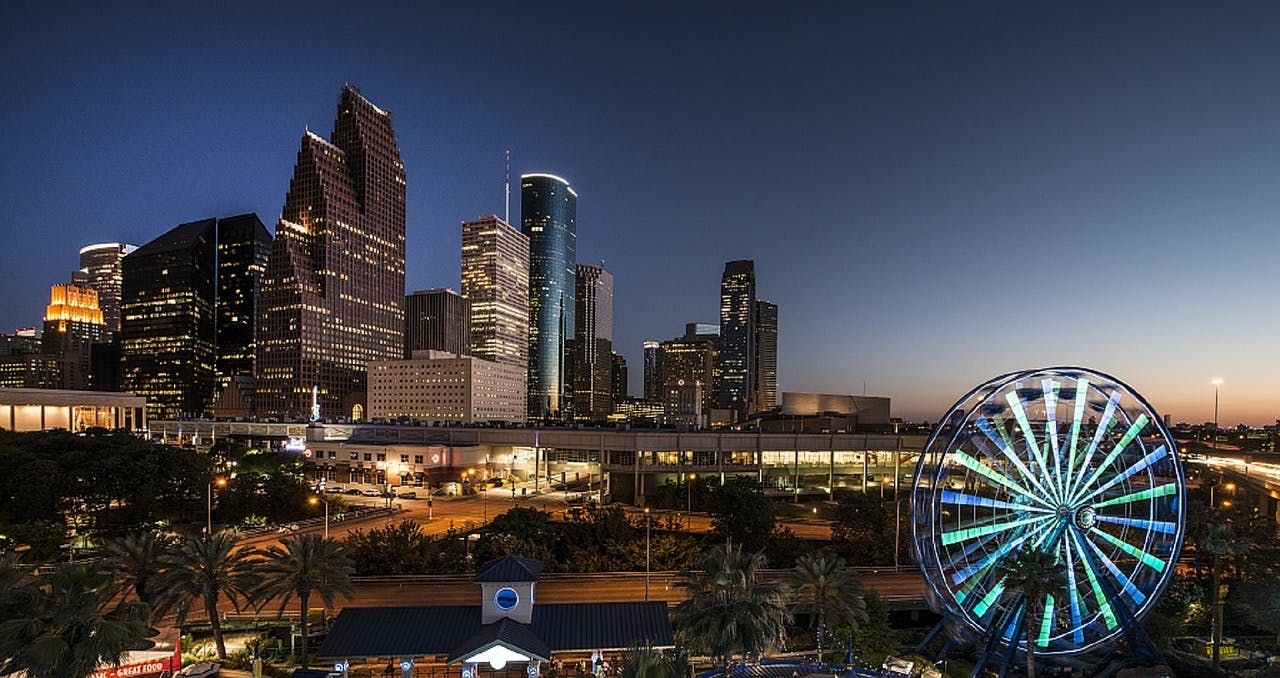
Few states in the country are more misunderstood than Texas. This is a completely understandable misunderstanding. Texas has always had a spirit of independence, and Texans in particular have always seen themselves as a bit more unique than most. The Lone Star State isn’t home to such slogans as “Don’t Mess with Texas” and “Keep Austin Weird” for nothing. Texans like their state clean, their businesses free to do business, and their citizens free to pursue whatever passion and pastimes suit their interests. But freedom does come at a price, and for Texas those consequences can mean a bit less security at home. Although more than a few Texans keep a gun (or several) around to protect themselves, their families and their homes, the real danger comes when you’re not at home. Burglaries are a serious issue in Texas, and in those cases, home security in Texas is a must.
Home Security Provider Requirements for Texas
You have a lot of be proud of Texas. Your burglary numbers, however, are just a bit on the high side. To be fair, California does beat out Texas for the number of burglaries per year by around 30,000. However, California also has a significantly larger population. If you take population sizes into account, sorry Texas, but you come out on top – and not in a good way. And since burglaries are all about what happens when you aren’t home, there’s really only one way to protect your home and property when you aren’t around: Getting a good home security system.
Texas has never been big on business regulations. It’s one of the many reasons why businesses (and, as a result, people) have been flocking to Texas. It’s cheaper and easier to do business in the state. This does not include home security providers. These businesses are regulated to the teeth in the Texas, which should come as no surprise since Texas is a state that is undeniably concerned about home safety. There are several laws that govern home security providers. Some are familiar simple and straightforward, such as one that requires anyone doing electrical work in the state to carry a license. One should only hope.
However, in the Texas Occupations Code, home security providers are given some very detailed requirements in order to do business in the state, or to even legally qualify to be called a “home security provider” in the first place. The document is fairly dense, with a significant amount of legalese that could make anyone’s head spin. A few key nuggets of information can be gleaned from this monstrous document. One is that Texas has an advisory commission in place–made up of elected officials, investigators and business professionals–that specifically governs private home security providers. If anyone is even thinking of setting up a shady business and doing any form of suspicious home security practices in the state, they will likely have to think again. Don’t mess with Texas, indeed.
The code pretty much regulates every aspect of the industry, and even allows individuals to obtain information on home security license holders who have received complaints within the last 3 years or who have been disciplined by their companies or by the commission for any reason. So if Joe Shmoe is installing an alarm system in your home, and you don’t quite trust the way he’s doing business, a call to the advisory board will let you know if anyone else has complained about him or if he’s been reprimanded for any bad behavior before. And if Joe Shmoe has a criminal record? Yea. Texas will let you know that, as well. Although chances are, if Joe has a history of sticky fingers, it’s likely he won’t get a license anyway. A Class B misdemeanors or worse on his record may preclude him from getting that coveted golden ticket of a license. Texas regulates the alarm system industry so heavily that a company that even fails to inform you about the consequences of making a false alarm could be in big trouble. We’re talking Class C misdemeanor trouble here.
And speaking of false alarms: You may want to avoid such an occurrence at all cost while in Texas. While Texas heavily regulates the industry, users of alarm systems are also under the gun for using systems both correctly and honorably. The Texas Local Government Code is yet another extensive legal document in Texas that has several topics pinpointing home security systems. We’ll try not to bore you with this one, but there are several places within this extremely dense code that make owning a home security system in the state a bit nerve-racking. Information can be found in Title 4, Subtitle B (118.133) and Title 7, Subtitles A and B, (218.001 and 237.001, respectively). Title 4, Subtitle B specifies that any county that has more than 2.2 million people (we can’t tell you why they chose this number, but oh well), can charge a fine for any false alarms–without a freebie. That means that even the first false alarm in a highly populated county in the state can eat away at your wallet. Oh, and there’s no specific fine amount. That’s set by the Commissioners Court. Title 7, Subtitle A, requires registration and permits for all security system customers, and even allows municipalities to set a maximum $50 fee for obtaining one. Oh, and they can revoke it if you have a false alarm. Yikes. However, this section also indicates that they can’t call it a false alarm unless they get there in 30 minutes or less. It’s like a free pizza, only a bit more…alarming. Finally, Title 7, Subtitle B, is a bit like a combined, summarized version of the previous two. Long story short, if you’re getting home security in Texas, be prepared to spend a few hours digging through mind-boggling amounts of legal documents and county codes.
Erecting Home Security Cameras
Not everyone is going to want to put up security cameras around their home. But on the off chance that you are looking to do so, know that Texas is no more or less strict here than most other states. That sigh of relief you just gave after learning all about the intensity of home security regulation in the state is understandable. There is only one state-level law will be of concern to anyone who has a strong desire to throw up a few cameras on and around their home. Texas Penal Code sec. 21.15 is pretty understandable here: Don’t illegally record anyone. Period. That means making sure your cameras are away from your neighbors’ windows, backyard, hot tub, etc. But there’s a section in this law that might be a bit concerning. If you have cameras in your home, and a burglar, for whatever odd reason, decides to shed his or her clothes, you’d be wise to not show that video to anyone but the police. Dissemination of said video could land a felony right onto your lap. The chances of that happening are slim to none, but it wouldn’t be the first time someone has broken into another person’s home and decided to strip down to their birthday suit. Burglars can be fairly unpredictable, so it’s best to err on the side of caution, even with videotaped evidence of a crime happening on or around your home.
Safety During Natural Disasters
Home security in Texas doesn’t just end with criminals breaking into your home. Texas is also prone to some fairly serious natural disasters. The size of the state and its location make it a prime target for nature’s fury. Even Texas A&M takes natural disasters in the state seriously – enough to list out possible disasters and ways to help stay safe during each of them. This includes the occasional wildfire and earthquake, but the much more frequent tornadoes and hurricanes.
Wildfires in particular should be treated with extra care. Certain parts of Texas can get extremely dry, and wildfires can start in an instant and spread quickly. When it comes to wildfire safety, always try to ensure you have a water source nearby, particularly one with a hose. We’re not encouraging you to play firefighter, but should the need arise, the ability to put out a small fire or two in your yard before it catches your home is a good plan. On a similar note, if you’re downwind of a wildfire, make sure to keep all windows closed and chimney flues shut. Smoke inhalation can be terrible on the lungs, and very bad for those with asthma. And as with most disasters, if a wildfire is about to catch your home in its sights, get out!. A garden hose is not likely to stop a full on blaze.
Hurricanes and tornadoes are the worst monsters most Texans will have to deal with as far as natural disasters go. Tornadoes and hurricanes can be treated similarly in some ways. For both, retreating to a basement or cellar without windows is the best option. Both storms can send glass flying and heavy objects whizzing at high speeds/ Get to a place with four sturdy walls and if possible a sturdy ceiling. Doing so can help save lives. Always have an emergency plan in place for when a warning has been issued. Try to stay under a heavy piece of furniture in both scenarios. And always try to keep some spare food and water that is easily accessible. Where a wildfire can be stopped by human efforts, there is nothing humans can do to prevent a tornado or a hurricane. These forces of nature must be respected. Although Texans like to laugh in the face of danger, trust us; these are dangers you’ll want to let pass by without a chuckle.
Texas is not known for being a state full of shy people. The good food and food fun found in Texas is something that most other states can only hope to emulate. Yet there are some very real dangers that do come from living in Texas. Whether it’s dangers from sneaky burglars or from Mother Nature on a rampage, these are dangers that should come with some advanced preparation. In business, there are the five Ps: Proper Planning Prevents Poor Performance. For safety in Texas, the same principle can easily apply.

